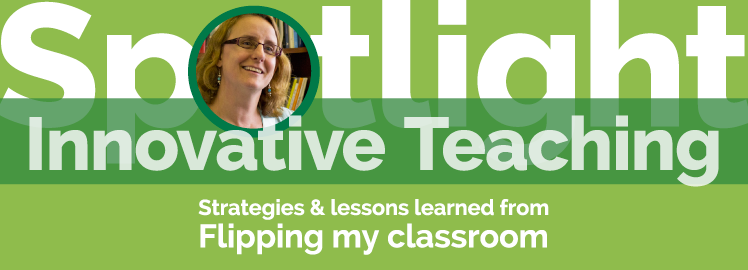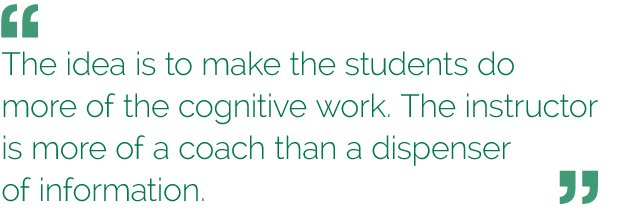
Lessons Learned from "Flipping My Classroom"
Mara Harrell, Associate Teaching Professor
Philosophy, Dietrich College of Humanities and Social Sciences
Course: Environmental Ethics (200-level)
Students: 24 Sophomores
What happens during class? |
What happens outside class? |
|
Students primarily work in small groups on open-ended problems or case studies chosen to highlight major themes in environmental ethics (e.g., fracking, geoengineering to mitigate climate change). Students have the freedom and time to dive into the issues in a way that is not scripted or dictated. |
Students read about and/or watch a short video about the problem they will discuss in small groups during class. For the fracking case study, students read a short case study and also watched a video clip on YouTube about a family that had to agree on a gag order regarding a legal settlement they made with a fracking company. |
